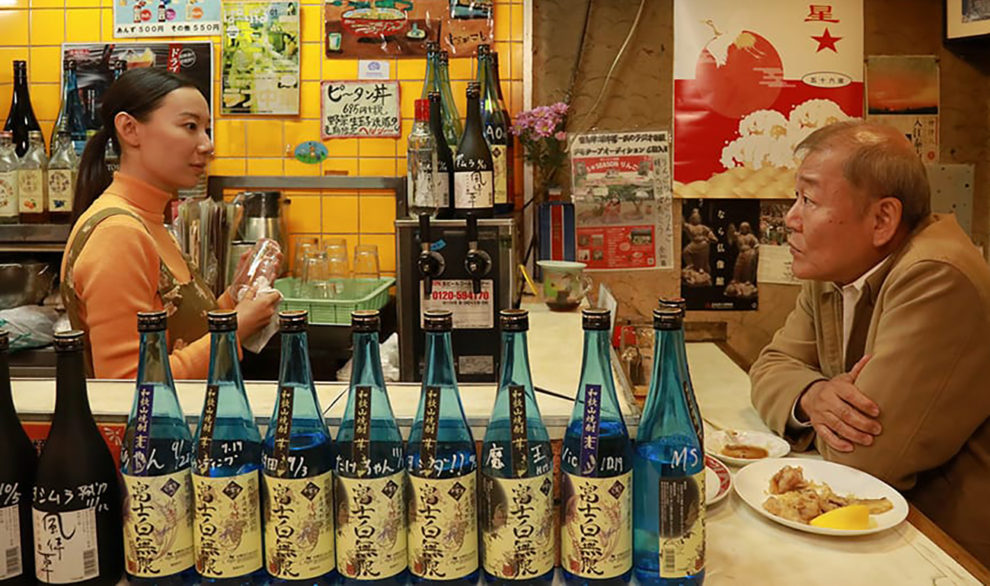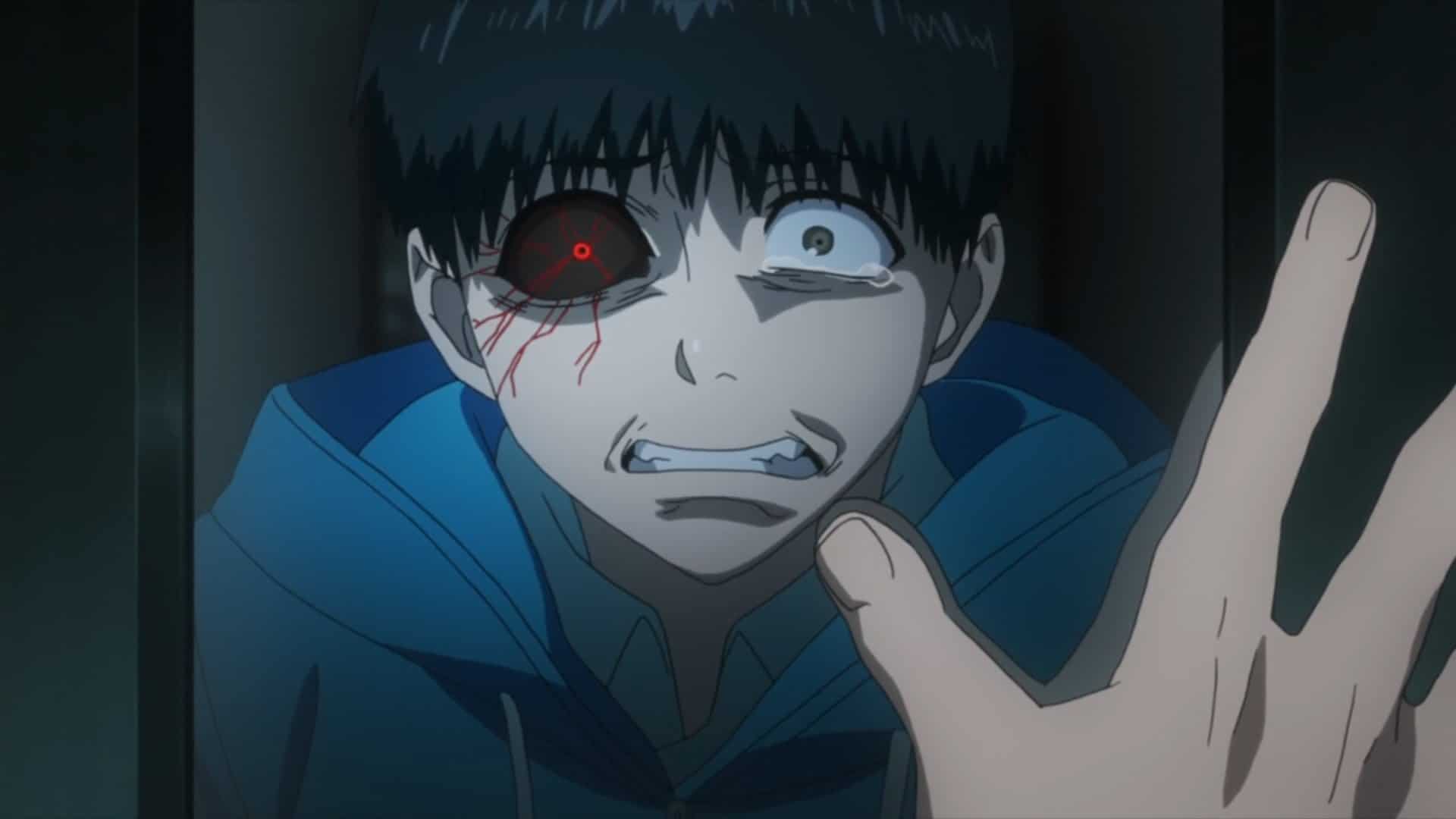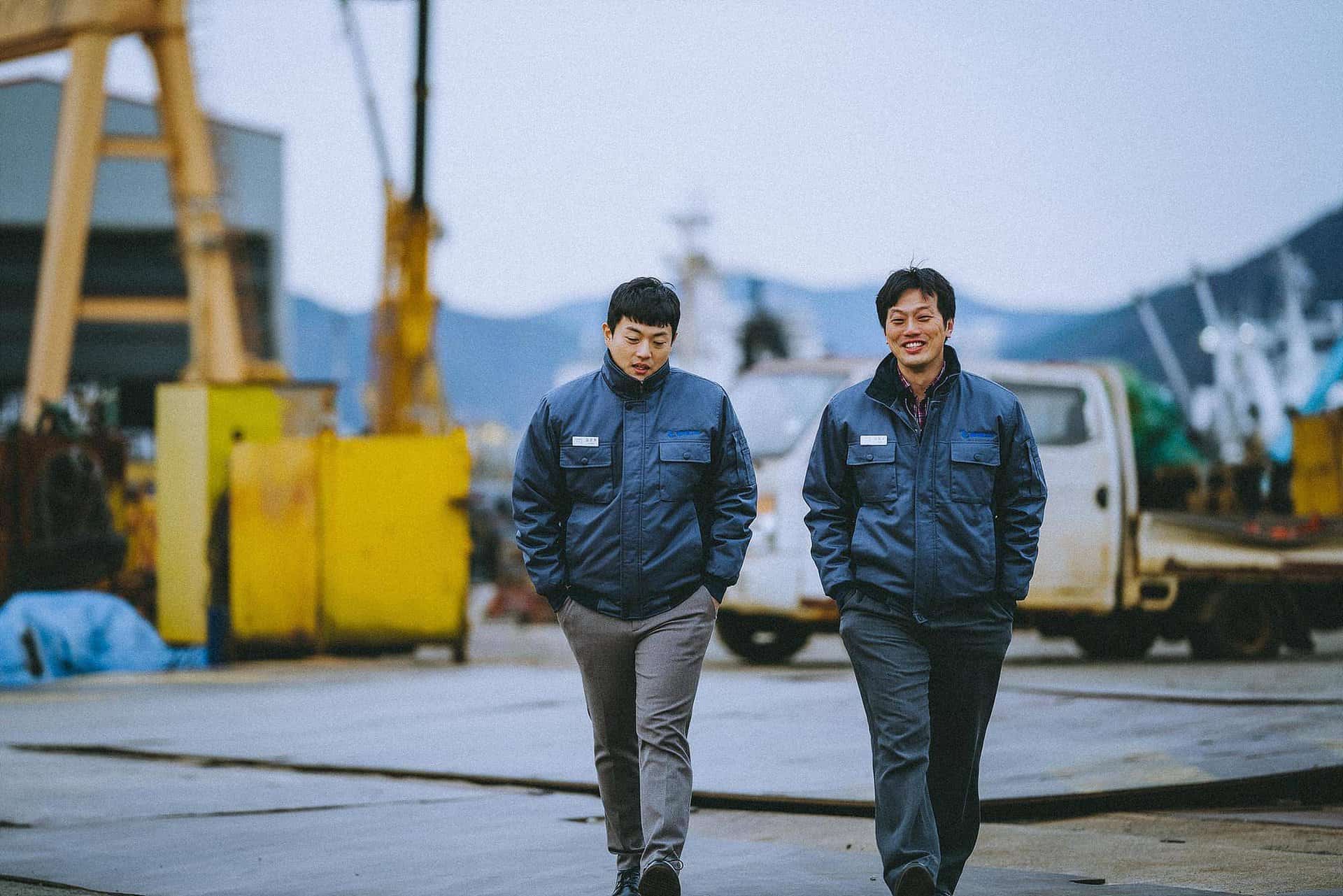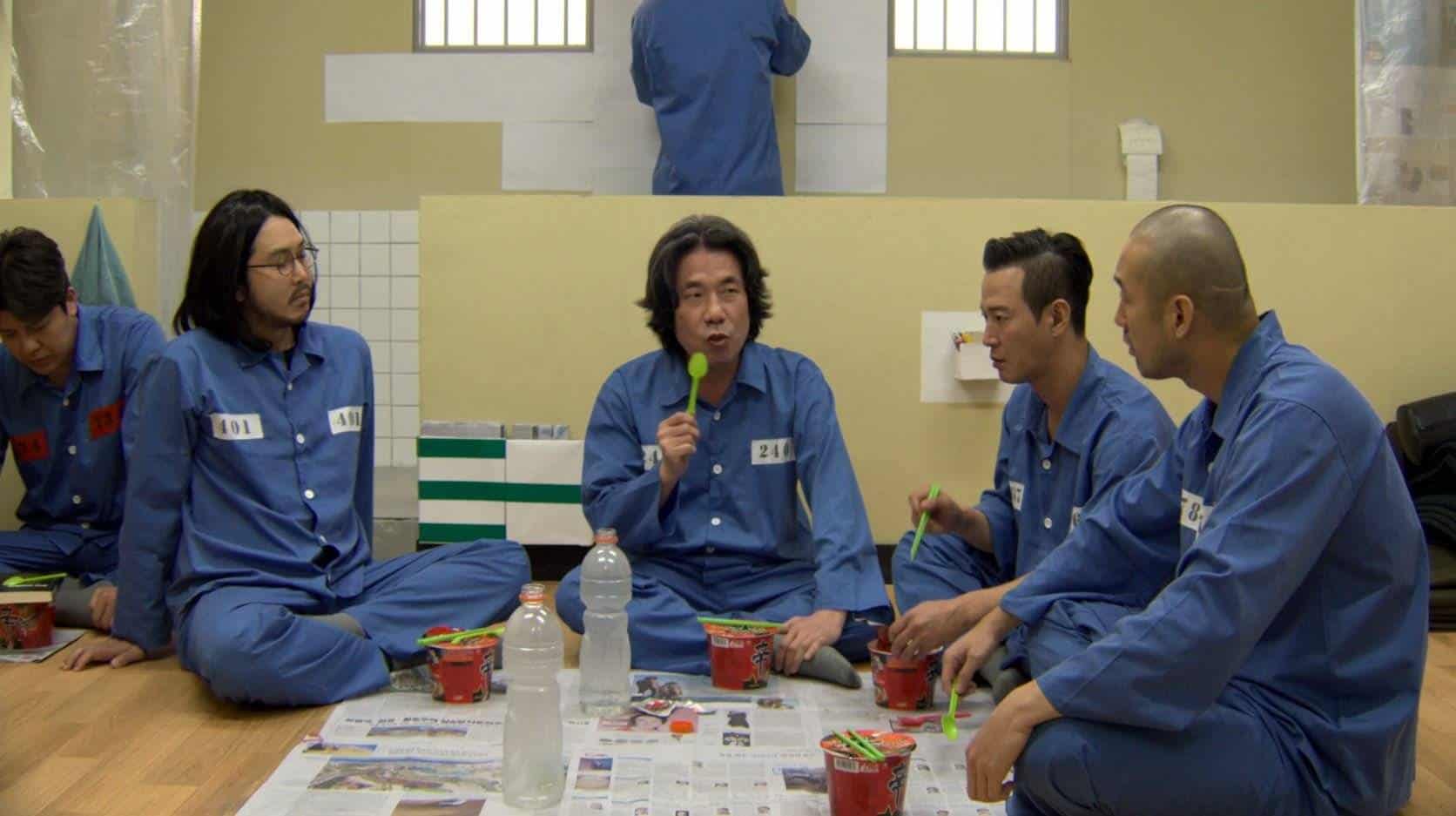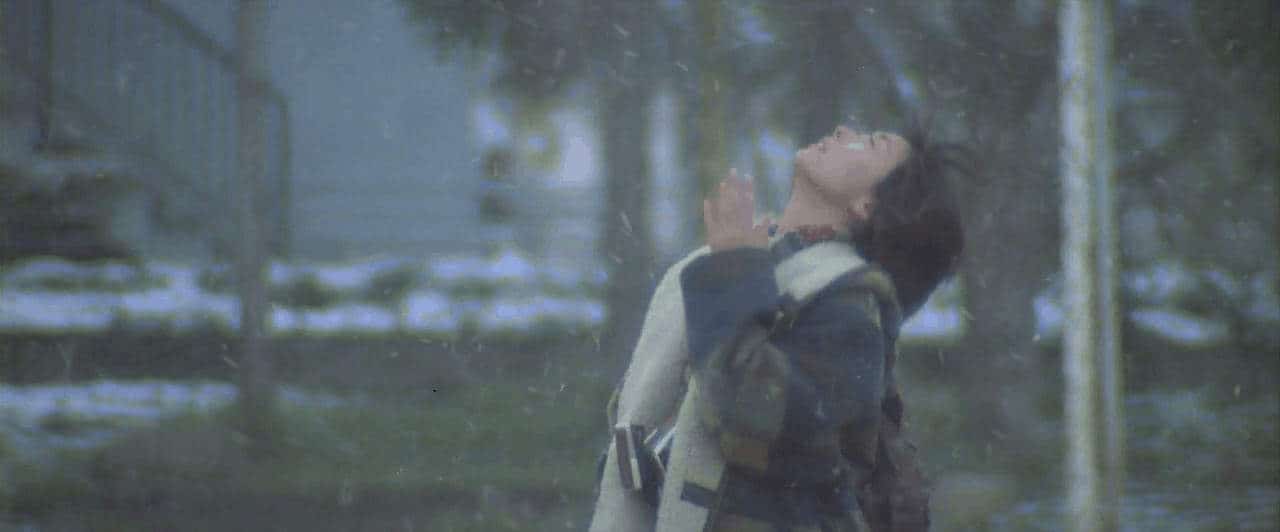Beijing-born director Peng Fei is back with a film that explores once again the intricate tangle of generations, cultural identity, family ties, sense of belonging. A co-production with Japan, “Tracing Her Shadow” shows in the credits directors Jia Zhangke and Naomi Kawase as executive producers and was co-financed and co-produced by Nara's biennial film festival, which Kawase helped found in 2010.
“Tracing Her Shadow“ is screening at CineCina Film Festival
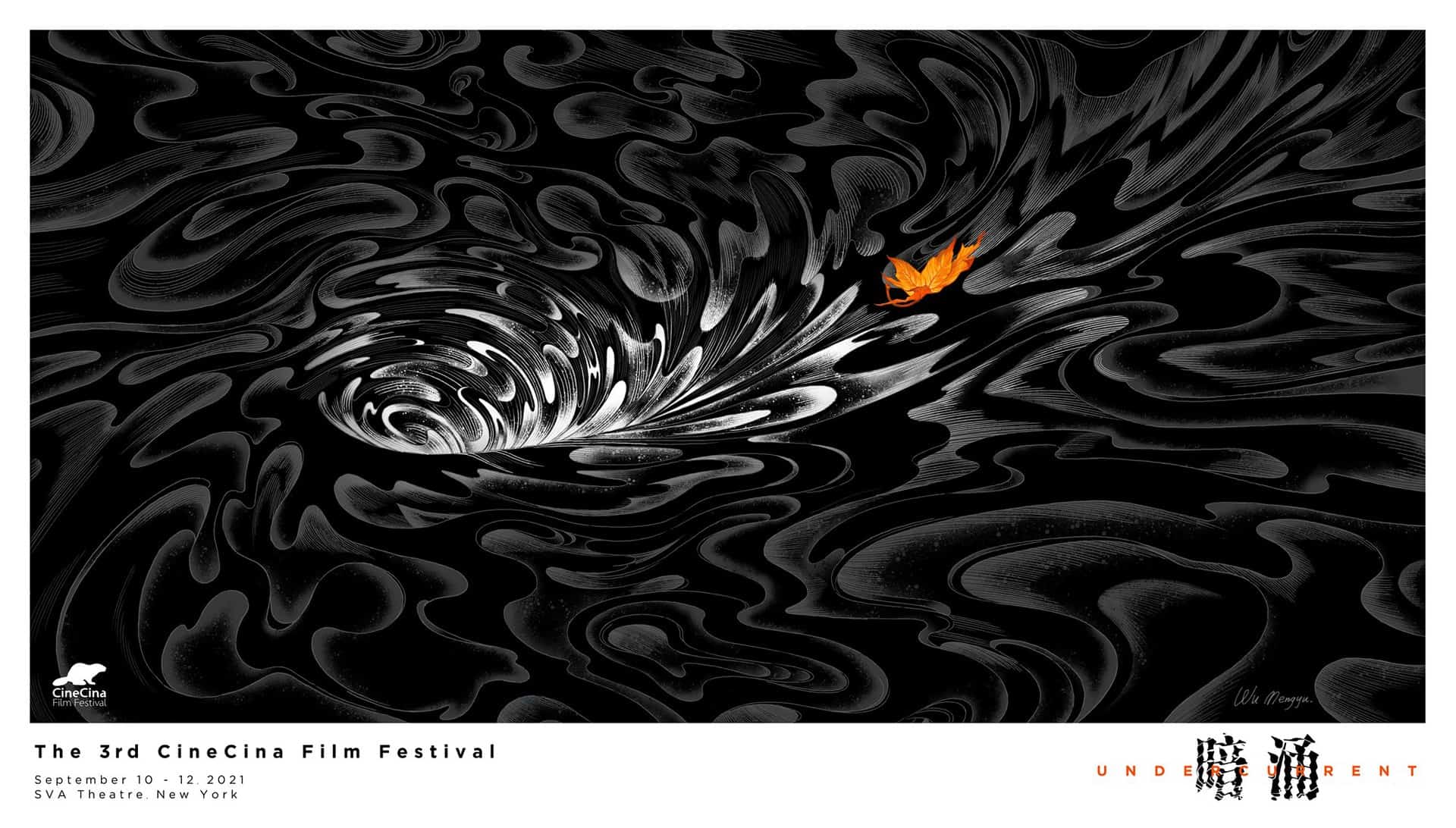
After a brief introduction to the main character Xiao Ze (or Shimizu Hatsumi as Japanese name, played by Peng Fei's regular muse Ying Ze) a young woman working in a bar in Nara, Japan, the film utilises a short animation to explain the preconditions for its plot and its historical context. At the end of WW2, the Japanese settlers fled northeast China in a frenzy and lots of their children were left behind. Some were sent back to their homeland, but many were abandoned, and Chinese families took them in and raised them as their own children. Later, when Japan and People's Republic of China settled relations in 1972, many of these orphans travelled back to Japan and tried to track down their families and relatives, in the awkward status of strangers in their own country. Some of them were lucky enough to retrace their roots, some less so, often rejected for fear of inheritance claims.
Even in “Tracing Her Shadow” a war orphan called by Chinese name Chen Lihua has returned to Japan leaving behind her dear foster mum Chen Huiming (veteran actress Wu Yanshu), but after few years of letter exchange, she's gone silent and hasn't sent a reply for a long time. Therefore, now is Chen Huiming's turn to fly to Japan in search of her lost foster daughter of whom she doesn't even know the Japanese name. Xiao Ze will help her as she is also a half-Chinese raised in China and daughter of a Japanese war orphan friend of the old lady. When Xiao Ze takes her grandma (as she likes to call her) for dinner in the izakaya where she works, a retired policeman (Jun Kunimura) and regular of the bar joins the couple, and after learning the touching story, offers his help in the search for the missing woman.

The three don't have many resources to track down the missing person. Chen Huiming has got only the letters she received from Chen Lihua, during her Japanese years and the policeman has a small network of ex-colleagues that could help. The trio will form an almost familial bond and will proceed slowly meeting many other war orphans with their own stories and the people that kindly helped them along the way.
In a slow-cinema mode, “Tracing Her Shadow” takes its time to narrate a collective story of forgotten people (in Chinese riben yigu “Japanese orphans” or canliu gu'er “leftover orphans”), shadows lingering between two places and two hearts. The director underwent a long period of research in Japan, before writing the script, collecting stories and testimonies from returned orphans and their families, and purposely set it in 2005, an era when smartphones and internet weren't so widespread and consequently, the search has to have a more “human” pace; reading letters for clues, visiting families, and talking with people. We get to know Chen Lihua slowly, in an indirect way, through the letters, the accounts, the people who met her briefly; we barely see photos of her. In fact, many of the links and relations in the film are indirect. The policeman sees his estranged daughter in Xiao Ze and assesses his feelings. On her side, Xiao Ze calls Chen Huiming “grandma” but she is not really her niece, only the daughter of another war orphan that knew her. More sweetly, Chen Huiming savours a tofu donut with her eyes closed, thinking that Chen Lihua had been working in that shop and maybe something of her still lingers in the fryer. It is a subtle net of strong ties that goes beyond bloodlines or obviousness, it is the slippery matter life is made of. It is also the director way to talk about the war. Not addressing directly the issue, but focusing on the capers of people that were scarred and damaged by it. In fact, Peng Fei, in line with his style, adopts a very humanistic approach and his critique to the sino-japanese conflict highlights the sorrow and anguish that both parts suffered and still endure.
It's not the main intent of the film, but sideways it cannot help addressing also the age-old Japanese problem of discrimination towards mixed-race people (hafu). In a light way when reading out Chen Lihua's experience and in Xiao Ze's reticence in disclosing her Chinese side, but also more brutally, showing a flashback where the parents of Xiao Ze's boyfriend harshly forbid him to marry a “half Chinese”.
However, despite the somber subject matter, the narration is punctuated with some graceful and amusing vignettes, with some surreal comedy sense, a mix between Jacques Tati and Roy Andersson in a good mood. Like when Chen Huiming and the policeman, in a symmetric visual composition, exchange silently the pictures of their younger selves to know each other better despite the language barrier. And when Chen Huiming, shopping for food, has a conversation with the butcher (director Peng Fei, in a cameo) all made up of animal noises.
The quiet, calm surroundings of Nara is a reminder of Naomi Kawase's participation as executive producer. Her homeland, often celebrated in her works, is a perfect backdrop for this slow-paced character-centred drama, where the inner struggle for connections and the determination of love is more important than the efficiency of the search itself. Peng Fei's and Tsai Ming-liang's regular DOP, Taiwanese Pen-Jung Liao, renders flawlessly the melancholic beauty of the provincial autumn in Nara Prefecture, the long shadows and the warm interiors. The splendour of nature though, doesn't dwarf the humans, but, on the contrary, it underlines the organic flow of the emotions and the bond-forming experience. Acting is one of the best points of “Tracing Her Shadow”, with two excellent veteran actors, Wu Yanshu and Jun Kunimura, giving a passionate but subtle performance and Ying Ze in a connecting role between the two, and looking very comfortable under Peng Fei's direction.
The film ends enigmatically with a long take of the three characters walking silently and steadily. It is the cathartic act of moving on and a hopeful gaze into the future.


